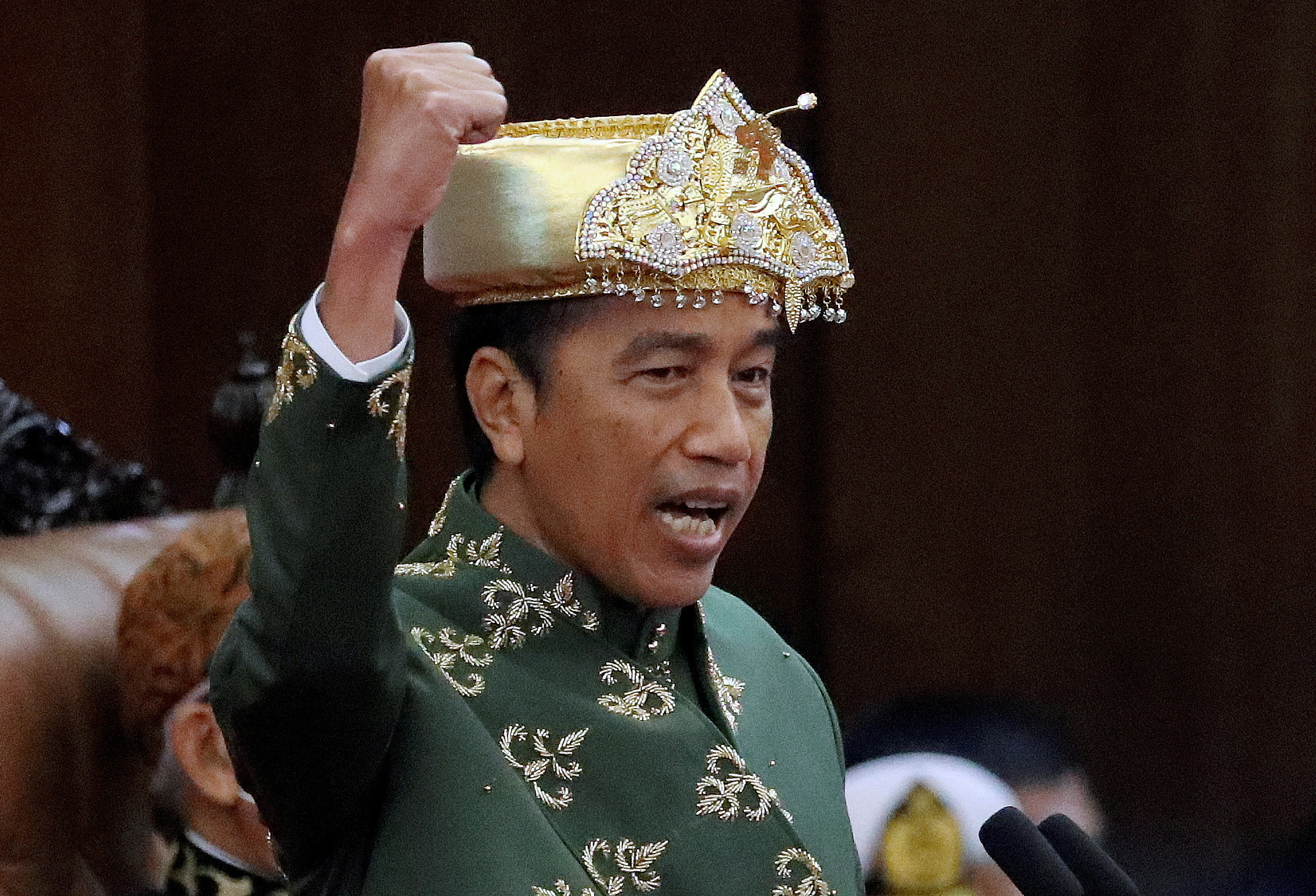Image: Reuters Berita 24 English - This week, thousands of people took to the streets in Indonesia to protest a rise in fuel prices. Analyst...
 |
| Image: Reuters |
Berita 24 English - This week, thousands of people took to the streets in Indonesia to protest a rise in fuel prices. Analysts say President Joko Widodo is in a good position to weather the storm, even as anger grows on the streets of Southeast Asia's largest economy.
Under pressure to deal with a budget for energy subsidies that is getting bigger and bigger, the president, who is known as "Jokowi," said on Saturday that fuel prices would go up by about 30%. This is the first increase in fuel prices since 2014.
His predecessor tried to cut fuel subsidies, but violent protests stopped him. With a high approval rating and a large group of supporters, Jokowi is likely to get through the uproar relatively unscathed, and analysts even think he could be a kingmaker in the 2024 election.
Sirojudin Abbas, the head of the polling firm Saiful Mujani Research and Consulting, said, "His political capital is strong enough to handle short-term shocks."
"The protests will end quickly because Jokowi's team has done a good job of handling the situation."
The pollster found that more than 70% of people approve of Jokowi, who is now well into his second of the two terms allowed by the constitution. His coalition also controls almost 82% of the seats in parliament.
"Jokowi is definitely going against the trend of 'lame duck' presidents," said Kennedy Muslim, an analyst at the polling firm Indikator Politik.
Muslim said that the anger over the price of gas couldn't have come at a better time for Jokowi, since his approval rating is almost at an all-time high.
Muslim also said that Jokowi's decision in 2019 to let his old rival Prabowo Subianto join his cabinet took away a possible source of opposition.
"Jokowi's decision early in his second term to invite his two-time political opponent Prabowo and his Gerindra party to join his administration and parliamentary coalition turned out to be a stroke of political genius," he said.
After the 2019 presidential election, which was very divisive and led to violent protests, Jokowi asked retired general Prabowo to become defence minister.
"THE OPPONENT IS WEAK"
Civil society groups have complained that critical voices are being silenced, but the coalition has helped the Jokowi administration deal with problems like the COVID-19 pandemic and now rising prices.
Abbas said, "The coalition has done a great job of calming fears that people might not trust the government." "The other side is weak this time."
After weeks of rumours, Jokowi's decision on Saturday to let the price of gas go up didn't come as much of a surprise.
In a televised speech, he told the public that it was a last resort, but that hard decisions had to be made.
The government has cut back on fuel subsidies, which President Jokowi said helped the middle and upper classes. This has caused fuel prices to go up, but the government has also increased social assistance, such as the BLT cash transfers that are given out temporarily.
"Agus R. Rahman, a political analyst at the National Research and Innovation Agency (BRIN), said, "People really have hope in BLT, but the question is how long that can last. Years? No, that's not going to be easy."
A 35-year-old factory worker who joined the protest outside the parliament building in Jakarta on Tuesday, Rifki Mubarok, said that the cash handouts would "never be enough to meet growing needs."
But Jokowi's friends are sure that he will have strong support despite the anger.
Hasto Kristianto, secretary general of the Democratic Party of Struggle, of which Jokowi is a member, said, "We can't deny the political impact, but the strong support from all the parties in the coalition gives political stability."
Jokowi's team seems to be figuring out how to deal with global inflation and free up money for the president's most important projects, such as a new capital city called Nusantara.
Kennedy Muslim of Indikator said that Jokowi should be able to keep his power in the run-up to the 2024 presidential election if he faces the truth about fuel prices this year instead of next.
"Jokowi can still be an uber-kingmaker in the end," he said. "If he can keep using his "carrot and stick" method to keep his coalition together so that they can handle this inflation threat."
(Kate Lamb in Sydney and Ajeng Ulfina in Jakarta did the reporting; Robert Birsel did the editing)






No comments